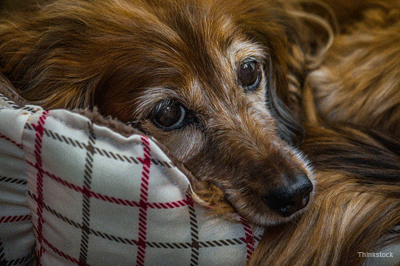
Kelly Serfas, a Certified Veterinary Technician in Bethlehem, PA, contributed to this article.
Two of the most frequent comments veterinarians hear about senior dogs who need surgery are:
- “That’s a lot of money for a 12-year-old”
- “I’m concerned about the risks of anesthesia”
As I always say, “age is not a disease.” What matters is the overall health of the patient, not the age. There are 14-year-old dogs who are healthier than 8-year-olds. When properly done, the risk of anesthesia is not significantly greater in seniors.
Keep in mind, when a senior dog requires anesthesia, it's not for the fun of it. It is for a good medical reason, such as cleaning dirty teeth, or fixing a torn anterior cruciate ligament (ACL), or removing a tumor. In any of these situations, the reason we recommend anesthesia and surgery is to improve the dog’s quality of life. So, instead of focusing on the dog’s age, which is just a number, we should focus on the health of the patient and the risks involved. In addition, we need to discuss how to decrease or manage the risks.
If you are still concerned about surgery in your senior, consider these four success stories:
Boomer’s surgery
I remember Boomer, a 16-year-old Newfoundland who had a huge mass in his spleen. By huge, I mean it was the size of a soccer ball. His guardians were not concerned about his age or "spending all that money on an old dog" or whether or not the mass was benign or cancerous. They only had one concern: helping their beloved dog before the mass would burst and cause internal bleeding. We took Boomer to surgery, and removed a 9-pound mass in the spleen. Boomer recovered smoothly from anesthesia and well afterward. A week later, the biopsy report came back: the mass was benign.
Duke’s surgery
Duke, a 12-year-old Labrador, was struggling to breathe because of laryngeal paralysis. This condition affects the larynx (or voice box) and causes suffocation. Without surgery, life is pretty miserable and stressful - especially in hot and humid weather. We commonly perform life-saving surgery on senior dogs affected with laryngeal paralysis. Most are Labradors, who are usually 10-14 years old. Duke’s surgery was successful: it almost instantly improved his breathing and dramatically improved quality of life.
Heidi’s surgery
Heidi, a 13-year-old Papillon, had horrible breath. She had stopped eating and became "moody." She started to snap at the other dogs and her guardian. She needed a dental cleaning and extraction of 12 teeth. Anesthesia and recovery went well and after a few days, she was much happier. Her appetite came back, not to mention her kisses came with much better breath!
Chance’s surgery
Chance, a 9-year-old Great Dane, had an aggressive form of bone cancer (osteosarcoma) in his left front leg. The tumor ate away part of the ulna, which is a small bone in the forearm. The treatment of choice is amputation of the leg and chemotherapy. His guardian was concerned about the dog’s age, as well as the arthritis that affected multiple joints, including severe hip dysplasia. Yet 2 months after amputation, Chance was comfortable and able to walk and run comfortably.
Any surgery and every anesthesia carry some degree of risk. Fortunately, in the vast majority of cases, we are able to perform successful anesthesia and surgery, (including senior dogs). And most of the time, the benefits greatly outweigh the risks. Remember, surgery (or dentistry) is always recommended to improve your dog’s quality of life.
